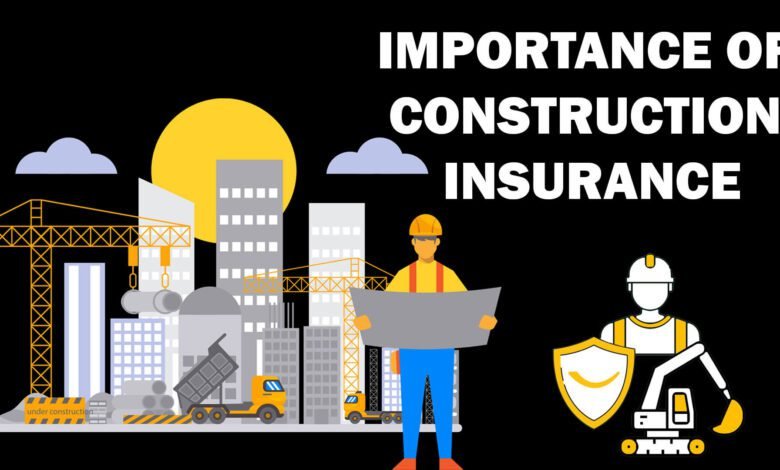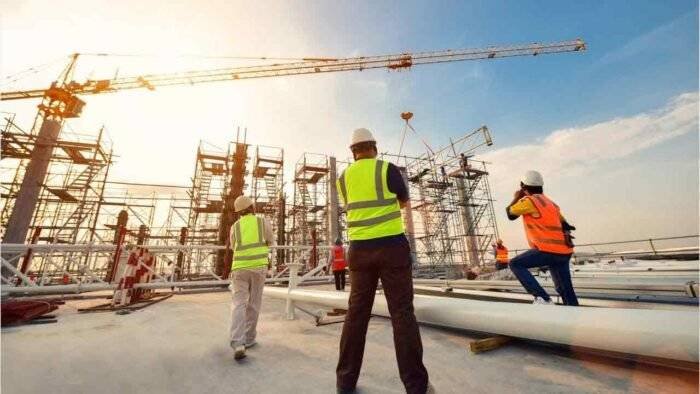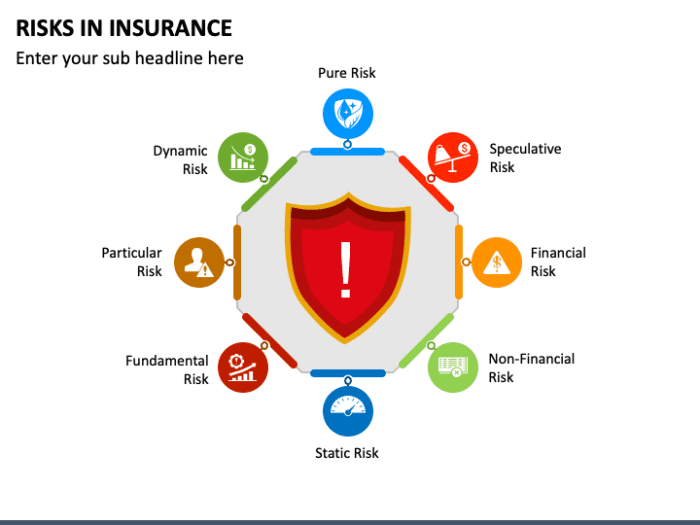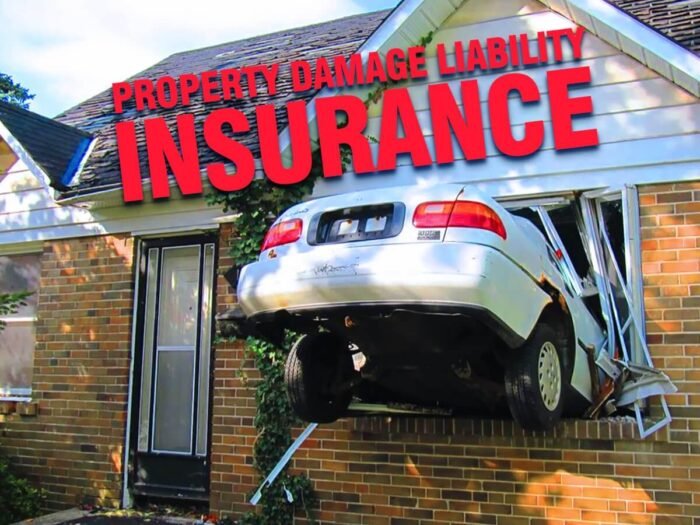Role and Importance of Construction Insurance for Contractors

1. Introduction to Construction Insurance
Construction projects inherently involve various risks and uncertainties that can potentially impact contractors, project owners, and other stakeholders involved. This is where construction insurance plays a vital role in providing financial protection and mitigating potential losses. Construction insurance refers to a range of insurance policies designed specifically for the construction industry, offering coverage for property damage, bodily injury, liability claims, and other potential risks associated with construction projects. This article aims to provide a comprehensive overview of construction insurance, exploring its types, benefits, importance for contractors, coverage options, best practices for managing policies, and future trends within the industry. By understanding the nuances of construction insurance, contractors can ensure adequate risk management and safeguard their projects, reputation, and financial stability.
1. Introduction to Construction Insurance
Understanding Construction Insurance
Construction insurance: it’s like a hardhat for your business. Just as construction workers need protection on the job, construction insurance provides coverage and peace of mind for contractors and builders. It’s like a safety net, ensuring that if something goes wrong, you’re not left hanging.

The Role of Insurance in the Construction Industry
Insurance plays a crucial role in the construction industry, where accidents and mishaps can happen in the blink of an eye. From property damage to worker injuries, construction projects are riddled with potential risks. That’s where insurance steps in, offering financial protection against unforeseen events and helping contractors stay afloat in the face of adversity.
2. Types of Construction Insurance
General Liability Insurance
Think of general liability insurance as your shield against the unexpected. It covers the costs of property damage or bodily injury caused by your construction activities. So, if a falling brick damages a neighboring property or a visitor slips and falls on your construction site, this insurance has your back.
Workers’ Compensation Insurance
Workers’ compensation insurance is like a magic potion that heals all workplace wounds. It provides medical benefits and wage replacement to your employees in case of work-related injuries or illnesses. It’s a win-win situation: your workers are taken care of, and you’re protected from potential lawsuits.
Builder’s Risk Insurance
Builder’s risk insurance is like an umbrella that shields your construction project from unexpected storms. It covers any damage to the building under construction caused by perils like fire, vandalism, or natural disasters. So, whether it’s a sudden downpour or a bolt of lightning, you can rest easy knowing your project is covered.

Professional Liability Insurance
Professional liability insurance is the safety net for your expertise. If a client accuses you of negligence or errors in your professional services, this insurance covers the costs of legal defense and any financial damages awarded. It’s peace of mind for architects, engineers, and other construction professionals.
Contractor’s Pollution Liability Insurance
Contractor’s pollution liability insurance is like a superhero cape for contractors working in hazardous environments. It provides coverage for damages caused by pollution incidents during construction, such as accidental release of pollutants or soil contamination. It’s essential for protecting yourself and the environment.
3. Importance of Construction Insurance for Contractors
Risk Mitigation and Financial Protection
Construction sites can be a breeding ground for risks. From accidents and property damage to legal disputes, the potential dangers are endless. Construction insurance helps mitigate these risks by providing financial protection. So, instead of losing sleep over what could go wrong, you can focus on building amazing structures.
Compliance with Legal and Contractual Requirements
Construction projects come with a plethora of legal and contractual obligations. Having the right insurance is often a requirement to secure contracts and comply with industry regulations. It’s like having the golden ticket to play the construction game without any legal hurdles.
Credibility and Competitive Advantage
In the competitive construction industry, credibility is key. Having the right insurance coverage not only showcases your commitment to safety and risk management but also distinguishes you from the competition. It’s like waving a flag that says, “I’ve got your back, and I’m serious about what I do.”
4. Coverage and Benefits of Construction Insurance
Property Damage Coverage
Accidents happen, and they can leave a trail of property damage behind. Construction insurance provides coverage for damage to buildings, equipment, and other property during your construction activities. It’s like having a handyman on speed dial to fix any mishaps.
Bodily Injury Coverage
From slips and falls to more serious accidents, bodily injuries can occur on construction sites. Construction insurance covers medical expenses, rehabilitation costs, and even lost wages for injured parties. It’s like having a first-aid kit for your business, ensuring everyone is taken care of.

Advertising and Personal Injury Coverage
Words can sometimes get you into trouble. If your advertising or business practices result in defamation, copyright infringement, or invasion of privacy claims, insurance has your back. It covers the costs of legal defense and any damages awarded, saving you from potential financial ruin.
Indemnity and Legal Defense
Nobody likes legal battles, but sometimes they’re unavoidable. Construction insurance provides indemnity and legal defense, covering the costs of legal representation, settlements, or judgments. It’s like having your own personal lawyer in your corner, ready to fight for your rights.
Remember, construction insurance is not just a luxury; it’s a necessity. So, before you start swinging hammers and pouring cement, make sure you have the right coverage in place. Your business and your peace of mind will thank you.
5. Choosing the Right Construction Insurance Policy
Evaluating Coverage Needs and Risks
When it comes to choosing the right construction insurance policy, it’s important to evaluate your coverage needs and risks. Think about the specific types of projects you undertake and the potential liabilities involved. Are you working on residential or commercial projects? Do you specialize in a particular area of construction? By understanding your unique needs and the risks associated with your work, you can ensure that you select a policy that provides adequate coverage.
Comparing Insurance Providers
With so many insurance providers out there, it’s crucial to compare your options. Look for reputable providers with experience in the construction industry. Consider factors such as their financial stability, customer reviews, and claims handling process. Don’t be afraid to ask for recommendations from other professionals in the field. Remember, choosing the right insurance provider is just as important as selecting the right policy.
Understanding Policy Exclusions and Limitations
Insurance policies often come with exclusions and limitations, so it’s important to understand them before making a decision. Exclusions are specific risks that are not covered by the policy, while limitations may restrict the extent of coverage for certain risks. Carefully review these details and make sure you’re comfortable with the scope of coverage provided. If there are any areas of concern, consider discussing them with your insurance provider to see if additional coverage can be added.
6. Common Claims and Disputes in Construction Insurance
Denial of Coverage
Insurance carriers may deny coverage based on various reasons, such as policy exclusions, insufficient documentation, or improper filing of claims. To avoid this, make sure you thoroughly understand your policy and fulfill all requirements when filing a claim. Promptly provide any necessary documentation and work closely with your insurance carrier to resolve any issues that arise.
Construction Defect Claims
Construction defect claims occur when there are faults or flaws in the work performed. These claims can be costly and time-consuming, involving disputes over responsibility, liability, and the extent of repairs or replacements needed. To prevent construction defect claims, it’s essential to prioritize quality control and proper project management. Regular inspections, adherence to industry standards, and effective communication between all parties involved can help minimize the risk of defects.
Disputes with Insurance Carriers
Disputes with insurance carriers can arise for various reasons, such as disagreements over coverage, claim settlements, or interpretation of policy terms. When facing a dispute, it’s important to maintain open communication with your insurance carrier and seek professional legal advice if necessary. Document all interactions and keep records of any relevant information that may support your position. Remember, resolving disputes amicably can help maintain good relationships and avoid unnecessary stress.
7. Best Practices for Managing Construction Insurance
Prompt and Accurate Documentation
When it comes to construction insurance, prompt and accurate documentation is key. Keep detailed records of all projects, contracts, permits, and insurance policies. This documentation will be crucial when filing claims or addressing disputes. Additionally, ensure that all project-related activities and incidents are documented in a timely manner. Having comprehensive and up-to-date records will make managing your insurance easier and more efficient.
Regular Policy Reviews and Updates
Don’t treat your insurance policy like an old tool gathering dust in your toolbox. Regularly review and update your policy to ensure it meets your evolving needs. Factors such as changes in project scope, expansion into new markets, or the introduction of new technologies can impact your coverage requirements. By staying proactive and regularly reviewing your policy, you can avoid potential gaps in coverage and ensure that you’re adequately protected.
Effective Claims Handling and Risk Management
In the world of construction, claims and risks are a part of the game. Respond promptly to incidents, document all relevant information, and work closely with your insurance carrier to navigate the claims process. Additionally, focus on risk management by implementing safety protocols, providing training to employees, and conducting regular risk assessments. By being proactive, you can minimize the likelihood of claims and mitigate potential risks.
8. Future Trends in Construction Insurance
Technology Integration and Data Analytics
The future of construction insurance lies in technology integration and data analytics. Insurers are increasingly leveraging technology to streamline processes, improve risk assessment, and enhance claims handling. From drones and satellite imagery for risk evaluation to apps and software for policy management, technology is transforming the insurance landscape. Additionally, data analytics allows insurers to gain insights into trends, identify areas of improvement, and provide more tailored coverage options.
Green Construction and Sustainability Considerations
As the world becomes more environmentally conscious, green construction and sustainability considerations are gaining momentum. Construction insurance policies are adapting to cover emerging risks associated with sustainable building practices, renewable energy projects, and environmentally friendly materials. Insurers are developing specialized coverage and risk management solutions to cater to this growing market segment.
Evolution of Coverage and Policy Structures
Insurance coverage and policy structures are constantly evolving to meet the changing needs of the construction industry. Insurers are exploring new approaches to coverage, such as parametric insurance, which pays out based on predefined triggers rather than traditional claims processes. Additionally, policy structures are becoming more flexible, allowing for customization and specific endorsements to address unique project requirements. As the industry evolves, construction insurance will continue to adapt to provide innovative and comprehensive coverage options.In conclusion, construction insurance is a fundamental aspect of the construction industry that cannot be overlooked. By having the right insurance coverage in place, contractors can protect themselves from potential risks and liabilities, ensuring the smooth progress of their projects. It is crucial to understand the different types of construction insurance available, evaluate coverage needs, and choose reputable insurance providers. Additionally, effective management of construction insurance policies and prompt handling of claims are essential for successful risk mitigation. As the construction industry continues to evolve, staying updated with emerging trends and embracing technological advancements will be key in shaping the future of construction insurance. By prioritizing construction insurance, contractors can confidently navigate the challenges of the construction landscape while safeguarding their interests and ensuring long-term success.
FAQ
1. Why is construction insurance necessary?
Construction insurance is necessary to protect contractors and other stakeholders involved in construction projects from potential financial losses and liabilities. It provides coverage for property damage, bodily injury, and other risks commonly associated with construction activities. Without construction insurance, contractors may face significant financial repercussions in the event of accidents, lawsuits, or other unforeseen circumstances.
2. What types of construction insurance policies are available?
There are several types of construction insurance policies available, including general liability insurance, workers’ compensation insurance, builder’s risk insurance, professional liability insurance, and contractor’s pollution liability insurance. Each policy offers specific coverage for different aspects of construction projects, addressing various risks and liabilities that contractors may encounter.
3. How can contractors choose the right construction insurance policy?
Choosing the right construction insurance policy involves evaluating specific coverage needs and risks associated with a construction project. Contractors should assess their project requirements, consult with insurance professionals, and compare policies offered by different insurance providers. It is important to carefully review policy exclusions, limitations, and endorsements to ensure comprehensive coverage and align with contractual obligations.
4. What are some best practices for managing construction insurance?
Managing construction insurance effectively involves timely documentation of incidents, regular policy reviews, and updates to ensure adequate coverage throughout the project duration. Contractors should also practice effective claims handling and risk management strategies to minimize potential losses. Staying proactive, maintaining open communication with insurance carriers, and adhering to safety standards are crucial for successful management of construction insurance.
Follow on Telegram https://t.me/civilworks








